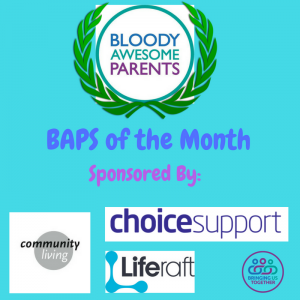Parent Groups – Feedback
We continue with our tips on running a Successful Parent Group.
So far, we have covered:
and today we are looking at Feedback.
 Do you ask for feedback?
Do you ask for feedback?
When we talk about feedback, we don’t mean the forms that any funders require you to complete (how many people attended, how did they enjoy, did you reach your outcomes, etc). We are not talking about parents responding to surveys to feed into service providers or national surveys.
We are talking about what the members think of the group? Many members join because of your values, so if your values have changed, are the members still as happy with you?
An example would be “Parent A joins your group because you have a monthly meet up with other parents”. She loves to meet up and just chat with people who totally get the issues she is facing without having to explain or justify her cause.
However, as a group leader you have noticed that the numbers of parents attending has really dropped so you stop doing them thinking people don’t want them. However, did you ask your members why they stopped coming or did you just listen to one or two who you speak to regularly? Does Parent A have a say in the events that made them join up?
One thing we have seen is parents just wanting to catch up, have a moan, have a giggle and just relax with other parents in their position. However, one or two of the group would really like some one to come in and chat about a topic (sleep, childcare, getting a EHC Plan, etc) and suddenly the others turn up and find they have to sit and listen to someone talk about something which may not be of relevance to them or may be of relevance but they just wanted to have a chat with some other mums.
Are you being led by the desires of one or two members? Did you ask your members what they all wanted? If someone wants to have someone come in to chat, maybe it is worth organising that as an additional event, or maybe signposting them to someone else who already provides that.
Ask your members what they want.
One of the common issues families chat about when talking about provision with their LA, is that no one asked them what they wanted. So, for example, the short breaks on offer are the art/craft type events which your child just detests. The frustration when these events are so poorly attended is felt by everyone.
Do you really want to be the group that families start to think of in negative terms because you don’t listen to them.
Why ask for Feedback?
How do your members think you could improve? Perhaps there are one or two ideas out there among your members but they’ve never suggested them because the time has never been right. They meant to suggest it at the last group but they were in sleep deprived mode and totally forgot, or they meant to be mention it in a Facebook chat, but they thought you seemed busy with another subject so they didn’t.
Members are often your greatest asset. All those people living with similar issues – how amazing is it to have these people engaged with you?
Your group can develop in a way that families enjoy and appreciate, it makes them feel part of a team and not someone who just ticks a box for you.
Often there is confusion around what you do, this especially relates to Parent Carer Forums. So many parents get confused as some forums offer advice/support, some just don’t have the capacity; some have regular meetings with families, others live in huge geographical areas and this isn’t always feasible. Having a very clear description of what you do, on any Facebook group, website, etc is hugely important – whatever group you run. It is also important that others within your area know what you do/don’t do. Having LA staff refer people to your group because they think you will help with something (and you don’t) can be really frustrating for both you and the family referred. As families ourselves, we often tend to go that extra mile to help the families but it’s not great to start a relationship with anyone saying “sorry, no, that’s not what we do”.
Perhaps consider having links to other groups in your area (or nationally) who provide things you don’t provide.
One of the ways feedback can help any group is to see what people think you offer and to see what people would like you to offer. Sometimes what people think you offer may be something you would love to but time/funding/capacity mean it’s just not possible, but having this information available can help with funding applications. Showing there is a demand for a service can really help.
How do you get Feedback?
There are many ways, especially with social media, to get feedback.
- You can run quick polls on Facebook groups to ask people for quick easy feedback.
- You can use Surveymonkey if you only have a small number of members or questions (a max of 10- questions or 100 responses). Survey monkey does require a fee if you want more responses (£26 per month for unlimited questions and 1000 responses).
- You could send out a paper copy to your members.
- If you have a blog, you could ask the question on there and use a contact form for them to reply.
The best way is to ask just one or two questions. If you send them a lengthy survey, it can put members off even starting it. If you ask one or two questions in a casual way (e.g. Facebook, via blog), people tend to engage more. Large annual surveys are a real turn off.
Also ensure you give yourself a cut off date for responses and make sure this is obvious on any poll/survey you run.
What to do with the Feedback?
Don’t ask for feedback if you are not going to act on it. If people spend their time letting you know their views, the very least you can do is a quick blog/facebook post to say what the feedback was. It may be that you provide links to the groups who offer what some families want, maybe you chat about what you would love to do but need more volunteers for.
Often people want to volunteer but are not sure what help they can be. If you have a list of things your group would like to do, with more help, this is great way to encourage others to volunteer.
You could say how it was obvious that members wanted “X” and that you are now putting in a bid for funding to provide that or ask your members how they can help with fundraising to make this happen?
Don’t just ignore the feedback, even if it tells you things you don’t really want to hear. As hard as that can be, it is better to hear it than to spend the next year banging your head against a wall trying to provide something that no one actually wants.
Feedback – Checklist
- Find out what your members think your group offers
- Find out what your members would like your group to offer
- Find out what your members are not interested in
- Look at Facebook group polls
- Speak to a larger local charity to see if they have a Survey Monkey account you could use?
- Think about one or two areas you would really like to get feedback on
- Delete that large annual survey!
- When asking for feedback, say when you will share the findings with members.
- Give yourself a deadline.
- Make sure everyone knows the deadline for responses.
- Most importantly, do something with the feedback!
Mum to three great kids, each with a different SEN.
Transplanted from the NW to the SE.
Co-founder and Director of Bringing Us Together

 Do you ask for feedback?
Do you ask for feedback?





